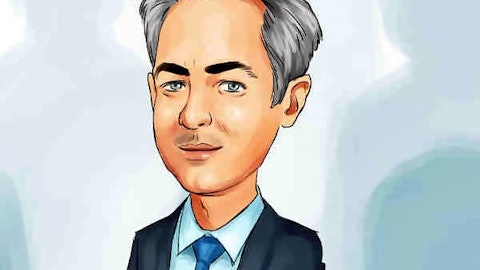There is sufficient evidence to claim that activist targets tend to greatly outperform broader market indexes. This is one of the main reasons hedge fund activism has skyrocketed over the past several years. Activist hedge fund firms greatly outperformed their non-activist peers and the broader market benchmarks over the years. In fact, research shows that target stocks significantly beat the market in the first year following the activist campaign and more than double their returns over the two-year period following the campaign. With that in mind, the following article will discuss three freshly-filed 13Ds with the SEC by several activist hedge funds tracked by Insider Monkey.
Following activist funds is important because it is a very specific and focused strategy in which the investor doesn’t have to wait for catalysts to realize gains in the holding. An activist fund can simply create its own catalysts by pushing for them through negotiations with the company’s management and directors. In recent years, the average returns of activists’ hedge funds has been much higher than the returns of an average hedge fund. Furthermore, we believe do-it-yourself investors have an advantage over activist hedge fund investors because they don’t have to pay 2% of their assets and 20% of their gains every year to compensate hedge fund managers. We have found through extensive research that the top small-cap picks of hedge funds are also capable of generating high returns and built a system around this premise. In the 38 months since our small-cap strategy was launched it has returned over 102% and beaten the S&P 500 ETF (SPY) by more than 53 percentage points (read more details). Soon, we’ll be releasing a new quarterly newsletter written by former activist hedge fund analyst Michael Bland that tracks ten or so activist campaigns at any given time.
According to a newly-amended 13D with the SEC, Sandell Asset Management, founded by Tom Sandell, owns 2.03 million shares of Bob Evans Farms Inc. (NASDAQ:BOBE), which include stock options to purchase 377,800 shares. The position accounts for 9.7% of the company’s outstanding common stock and compares with the 1.62 million-share position revealed in Sandell’s latest 13F filing. More importantly, Tom Sandell has also sent a letter to Bob Evans’ Board of Directors, suggesting the sale of the company’s packaged food business, BEF Foods, in order to unlock shareholder value. The letter also outlined that Post Holdings Inc. (NYSE:POST) has already expressed its interest in the BEF Foods business, which is valued at more than $950 million by the activist hedge fund. Moreover, Sandell and his team pointed out that “the timing to effect a separation of BEF Foods is ideal”, considering that Bob Evans Farms Inc. (NASDAQ:BOBE) recently announced the appointment of Saed Mohseni as CEO and President. The newly-appointed CEO is well-prepared to enhance the Bob Evans Restaurant business if bearing in mind his restaurant experience and should not be distracted by the presence of the packaged foods business, said the letter.
Shares of Bob Evans Farms are down more than 22% this year, while the intrinsic value of the company is believed to be substantially greater than the value implied by its current stock price. A total of 22 hedge funds from our database had stakes in the company at the end of the third quarter, compared to 18 at the end of the previous one. Even so, the value of these stakes shrank to $238.94 million from $290.45 million during the three-month period. These 22 investment vehicles owned 24.60% of the company’s shares on September 30. Rob Citrone’s Discovery Capital Management cut its position in Bob Evans Farms Inc. (NASDAQ:BOBE) by 3% during the July-September period, ending the quarter with 1.85 million shares.
Let’s head to the next page of this article, where we reveal fresh insights about Dalton Investments’ campaign in a struggling media company and Carl Icahn’s new activist target.





